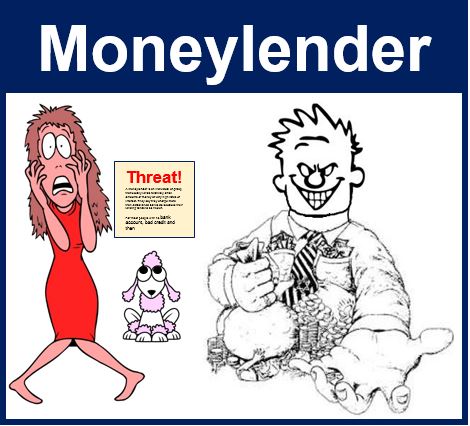A Moneylender is an individual or group that usually lends relatively small amounts of money at very high rates of interest. They say they charge more than established banks do because their lending tends to be riskier.
This risk is often due to the lack of collateral and the informal assessment of creditworthiness, which characterizes much of their transactions.
For some, the only choice
For most people with no bank account, and bad credit histories, as well as those with too much debt (so banks won’t lend them anymore), who do not have relatives or friends who can offer a loan, going to a moneylender is their only option.
Throughout history, moneylenders have earned the bulk of their living by preying on vulnerable people, as well as gamblers and compulsive shoppers who have built up considerable debts.

In most countries today, there is legislation that limits how much moneylenders can charge. In India, for example, they need to be registered and are governed by Money Lenders Acts in different states.
Many moneylenders are predatory – they actively seek out vulnerable individuals in financial trouble who have nobody else to turn to.
Loan sharks are people or firms that lend money at outrageously-high interest rates. The term may be used for legal moneylenders or illegal ones – what they all have in common are their exorbitant interest rates.
Are banks moneylenders?
Banks lend money, so why aren’t they included in the definition of moneylender?
A moneylender (one word) refers to a specific type of lender.
When talking about proper banks, we could use the components of the term ‘moneylender’, but would need to separate the two words, i.e. a bank is a money lender (banks also take deposits).
The meaning of usury
Usury refers to the practice of making immoral or unethical loans that unfairly enrich the moneylender.
If the lender charges exorbitant interest fees and demands other conditions, the loan may be considered usurious.
In Christian societies in the past, and several Islamic ones today, the simple act of charging interest, no matter how small, can be considered usury.
A usurer is a person who practices usury. A loan shark is a usurer.
Modern financial systems increasingly advocate for microfinance institutions as ethical alternatives to traditional moneylenders, offering more reasonable interest rates and community support.
